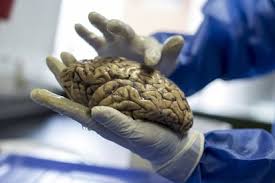Alzheimer’s is a long-lasting neurological illness that robs people of their independence and memories. Even if a treatment hasn’t been discovered, current findings provide some hope. Rare genetic variants that seem to confer extraordinary resistance to Alzheimer’s have been found in studies; these findings offer important new therapeutic targets.
A noteworthy case from Colombia surfaced in 2019. The PSEN1 gene mutation that the woman possessed is usually associated with an aggressive type of Alzheimer’s that manifests in her 40s. This lady, however, disregarded predictions and maintained decades of cognitive health. Scientists were not let down by the oddity that spurred their investigation.
Scientists discovered a second incidence of extraordinary resilience in 2023, just a few years later. This patient, a male from Colombia, had the identical PSEN1 mutation but was only experiencing modest cognitive loss well into his late 60s. Remarkably, both individuals’ brain scans showed the distinctive plaques linked to Alzheimer’s. This shows that rather than preventing the original pathology, the protective mutations provided a means for the brain to adapt to it.
The other genetic variants these people carried are what account for their resilience, not the defective PSEN1 gene itself. A protective mutation in the APOE gene, which is known to affect the risk of Alzheimer’s disease, was present in the lady in the first case.
These results are incredibly important. They emphasize the possibility of using genetic medicines to strengthen the brain’s resistance to Alzheimer’s disease by focusing on particular pathways. Researchers can create medications that imitate the protective benefits of these mutations by comprehending how they work. One protein involved in creating neural connections—a process essential to normal brain function—seems to be regulated by the RELN-COLBOS mutation, for example. Drugs that target this pathway may be able to protect neurons from Alzheimer’s-related neuronal damage.
Nonetheless, it’s critical to acknowledge the limits of these results. The identified mutations are extremely rare, with just a small percentage of the population carrying them. Direct replication would not be a practical therapeutic approach, even though they provide insightful hints.
The study emphasizes the complicated roles that environment and genetics play in Alzheimer’s disease. In addition to lifestyle choices like nutrition, exercise, and mental stimulation, genes also play a big part. Even in the absence of these beneficial mutations, Alzheimer’s risk can be considerably decreased by leading a healthy lifestyle.
Though the battle against Alzheimer’s is far from lost, these findings provide a glimmer of optimism. Researchers are getting closer to creating medicines that work by figuring out the complex principles of genetic resistance, which could lead to a day when Alzheimer’s disease is not fatal.


